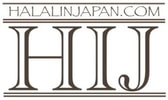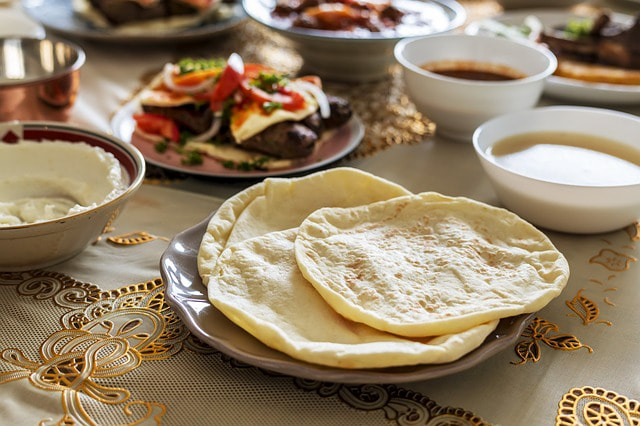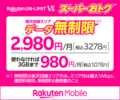The halal certification enhances the marketability of products in Muslim countries/markets and requires a small cost investment, relative to multiple growths in revenues. Besides Muslims, other segments have joined the ranks of halal consumers, as these types of foods gain worldwide recognition as being safe and hygienic. Non-Muslim consumers like them, because of their additional safety and sanitation features, making them less likely to be cross-contaminated. Therefore, there is tremendous economic opportunity for food manufacturers to meet the needs of all consumers of halal food products. Over the past 30 years, many halal markets, ethnic stores and restaurants have sprung up, mainly in major metropolitan areas. In the past, Muslim businessmen slaughtered their own animals, and the concept of halal certification was foreign to them. However, in the late 1990s, small to mid-size companies recognized the vacuum and need to capture this niche. Foods and beverages bearing halal certification are readily accepted by Muslim consumers, as well as customers from other religions, provided it is from a reputable certification organization. Fundamentals Of Halal FoodsGenerally, killing animals in Islam is only permissible for two main reasons:
All foods pure and clean are permitted for Muslims, except the following "including any products derived from them or contaminated with them":
If food companies can avoid ingredients from these sources, halal food production is very similar to regular food production. Food processors should be aware of the following common food ingredients and their sources: food additives;
When processing halal products, it is necessary to eliminate all contamination with non-halal ingredients. What Is A Halal Certificate?A halal certificate is a document issued by an Islamic organization, certifying the products it covers meet the Islamic dietary guidelines, comprising of, but not limited to, the following:
The method of slaughtering animals consists of using a well-sharpened knife to make a swift, deep incision that cuts the front of the throat, the carotid artery, windpipe, and jugular veins. The head of an animal that is slaughtered using halal methods is aligned with the Qiblah. In addition to the direction, permitted animals should be slaughtered upon utterance of the Islamic prayer 'Bismillah' "in the name of God." Types Of Halal Certificates And DurationThere are two types of halal certificates, and their duration depends on the type of food or beverage. The first type of certificate is a site registration certificate, which signifies that a plant, production facility, food establishment, slaughterhouse, abattoir or any establishment handling food has been inspected and approved to produce or serve halal food. It does not mean that all food products made or handled at such a facility are halal-certified. A site certificate may not be used as a halal product certificate. The second type of halal certificate is for a specific product or a specific quantity. This certificate signifies the listed product or products meet the halal guidelines formulated by the certifying organization. Such a certificate may be issued for a specified quantity of the product destined for a particular distributor/importer. If the certificate is for a specific quantity, it may be called a batch certificate or a shipment certificate. Meat and poultry products, where each batch or consignment has to be certified, generally receive a batch or shipment certificate. The duration for which a certificate is valid depends upon the type of product. A batch certificate issued for each consignment is valid for as long as that specific batch or lot of the product is in the market--generally, up to product expiration date or “use by” date. In a separate case, if a certified product is made according to a fixed formula, a certificate may be issued for a one-, two- or three-year period. The product remains halal-certified, as long as it meets all the established and agreed-upon production and marketing requirements between the company and the halal-certifying organization. Who Is Authorized To Issue Halal Certificates?Any individual Muslim, Islamic organization or agency can issue a halal certificate, but the acceptability of the certificate depends upon the country of import or the Muslim community served through such certification. For example, in order to issue a halal certificate for the products exported to Malaysia and Indonesia, the issuing body of the halal certificate must be listed on each country’s approved list. It is important food manufacturers be aware of not only the halal requirements for different countries and the principles of halal, but, also, understand the organizations which meet their needs the best. They should choose a certifying body that can service their global needs, as well as one that is acceptable to both the countries of import and the local Muslim community. Which Products Can Be Certified?With the complexity of manufacturing systems and the utilization of all animal by-products, any product consumed by Muslims may be certified, whether the product is consumed internally or applied to the body externally. Medicines and pharmaceutical products which are used for health reasons need not be certified; however, knowledgeable consumers look for products that are halal-certified or at least meet halal guidelines. The products that may be certified include:
Halal Certification ProcessThe halal certification process starts with choosing an organization that meets the needs for the markets to be serviced. Many countries, like Singapore, Indonesia and Malaysia, have government-approved halal programs, whereas the predominantly food-exporting countries have independent certification bodies. When targeting a specific country, it is better to use an organization that is approved, recognized or acceptable in that country. If the market area is broader or even global, then an organization with an international scope would be better. The process starts with filling out an application explaining the production process; the products to be certified; and regions in which the products will be sold/marketed, along with specific information about the component ingredients. Most organizations review the information and set up an audit of the facility. At this time, it would be advisable to negotiate the fees and have a clear understanding of the costs involved; in some cases, the cost may run into thousands of U.S. dollars per year. During review of the ingredient information and/or the facility audit, the organization may ask manufacturers to replace any ingredients that do not meet its guidelines. Generally, the company and the halal-certifying agency sign a multi-year supervision agreement. Then, a halal certificate may be issued for one year or for a shipment of a product. Overall, the process for halal certification of the food products is not complicated. Use Of Halal MarkingsWhen a product is certified halal, a symbol is normally printed on the package to inform consumers. For example, the Islamic Food and Nutrition Council of America "IFANCA" uses the crescent symbol, which signifies "Good for Muslims". There are several other symbols being used by halal-certifying agencies, like an Arabic letter, Arabic lettering for the word halal or the actual word "halal". However, products will be better accepted by the Muslim consumer, if the logo is from the local halal authority or, in the case of imported products, if it signifies a reputable halal certification organization. Steps Involved In Halal Certification
8 Comments
Amalia
1/10/2019 10:18:31
Thank you for the information.
Reply
Halal In Japan
1/10/2019 14:02:42
The best way to find out what is the source is to contact the manufacturer.
Reply
7/10/2019 17:17:37
This restaurant is serving 100% Halal and we don’t serve alcohol
Reply
Halal In Japan
7/11/2019 13:17:20
Thank you for visiting our website. Your restaurant is listed on Tokyo's Toshima Ward list.
Reply
mojahid
10/10/2019 15:05:33
Salaam,
Reply
Halal In Japan
10/10/2019 18:18:57
Salaam,
Reply
Leave a Reply. |
Halal In Japan
|
|



 RSS Feed
RSS Feed





